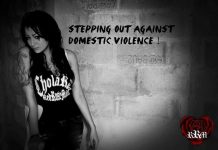“If I’m being honest, I can’t understand a word you’re saying. I just want your tight pussy,” my date blurted out halfway through the evening.
At 18, I was astonished by the words that came out of his mouth. Not just because it was both misogynistic and ableist, but also because, apparently, my disabled body was the subject of hypersexualization. As an Asian woman, I had grown up in a culture that prizes physical perfection, but I was born with cerebral palsy, which affects my speech and mobility. My body was far from perfection, but I often find myself at these crossroads, caught in a web of stereotypes. An ex once told me that he didn’t care for me as a person, but his “yellow fever” made him stay with me. Back then, I was just happy someone found me attractive.
As a daughter of Korean immigrants, the unspoken rule was that dating before college was out of the question. Although I had secret boyfriends, it went only so far under the roof of my super-strict parents. In hindsight, my family probably thought no one would date me; disability was very much a foreign concept for them. In South Korea—and most Asian countries—disability is yet to be socially accepted. People with disabilities are shunned from society and often institutionalized.
In Asian communities it’s a common belief that a disability is a curse: A person is born with or acquires a disability as a form of chastisement or bad karma. When a child is born with a disability, it’s assumed that the parents are being punished for their sins. At least, that was the message I grew up hearing at the Korean American church I attended where the congregation never passed up an opportunity to remind me that I was different. They delivered their judgments under the guise of good intentions; they’d pray that I would be “healed” of my disability, while the kids would shamelessly ridicule the way I talked and walked.
For some time I thought maybe this was just an evangelist problem. But I felt isolated everywhere in the Asian community. Countless Asian-run nail salons refused to serve me because they “didn’t know how to accommodate” me. Asian taxi drivers in New York City drove off when they realized I was disabled. A Korean family physician once refused to treat me for a common cold because she never treated “a kid with my condition” (though the common cold doesn’t affect my body any differently because of my cerebral palsy). I grew up believing that I didn’t belong.
As a woman, a member of the Asian American Pacific Islanders (AAPI) community, and a person with a disability, I’ve always felt like a walking target—my very existence making me a minority within a minority to either be ignored or fetishized.
So it came as no surprise to me that as hate crimes against the AAPI community grasped national attention, those of us with disabilities—an estimated 1 in 10, according to the CDC—are often left out of the conversation, and that the safety of Asian women with disabilities (who are three times more likely than their nondisabled counterparts to be victims of sexual violence) is still not included. I’m left on the borderlines of both the disability and AAPI communities, not definitively belonging to either one. It’s nothing new to me: From the men who thought they had achieved their sexual fantasy to be with a crip yellow chick to the countless times that people of my own ethnicity treated me like dirt, I’ve gotten comfortable with not feeling comfortable.
This feeling of being an outsider has become a lingering threat. During the pandemic many people with disabilities are at higher risk of complications from the coronavirus, but the disability community has remained largely silent about AAPI racism, a comorbidity of this virus.
It really doesn’t have to be this way. This month—Asian American and Pacific Islander Heritage Month—the nation is having a much-needed talk about all the struggles and hardships that the AAPI community has endured. But it’s merely lip service if such awareness and acknowledgment do not include all AAPIs, specifically those with disabilities.
It gives me hope that tangible actions to prevent AAPI hate crimes and educate Americans about often forgotten Asian American history are finally taking place. But I cannot—and will not—wait until the country starts acknowledging people like me to start loving myself. I and other minorities within minorities deserve way better than that. Society may not know what “box” to put us in, but I’ve known that I’m too special to be constricted into one category for a long time. People may see only my disability or my race, but I am so much more than those things. In my nearly three decades of life, I’ve done hard work to ground myself and be undeterred when something tries to knock me down. It’s no different this time.
Sarah Kim is a freelance journalist and content writer who focuses on the intersectionalities of race, gender, politics, and culture with disability. You can find her work at beingsarahkim.com.




